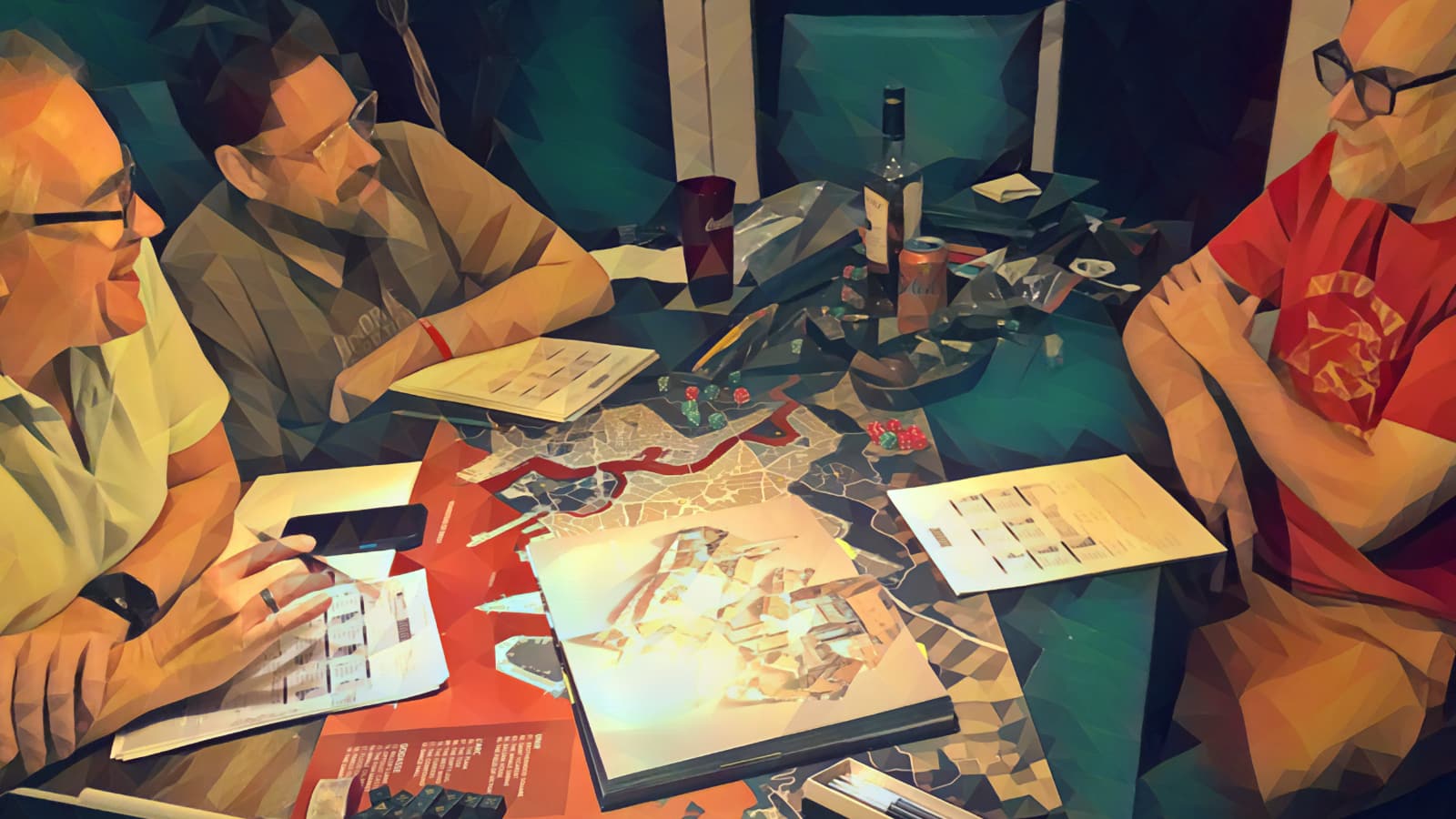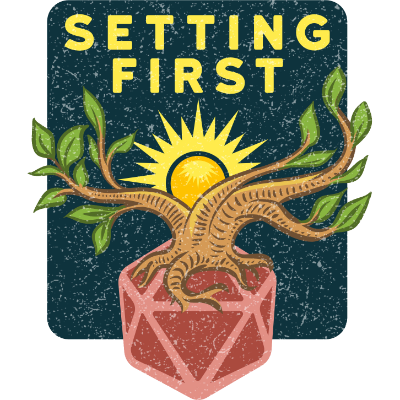
Eighty-two sessions into a Degenesis campaign, I reflect on how I’ve run the game so far, what my players and I have learned, and what the game has given us.
Degenesis is a Foundational Game
Foundational game is my term for a game with a setting that can be used to run multiple lengthy campaigns, each with its own themes and distinctive adventures, without exhausting its possibilities. A group can play a foundational game for years and still find new aspects to explore.
RuneQuest, with its Glorantha setting, is an excellent example. A lengthy campaign in which Lightbringer cultists root out Chaos in Sartar could be followed by another in which Lunar merchants establish trade routes to Prax in order to amass wealth, and a third built around Uz defending their lands from incursions by sun-worshipping invaders.
Degenesis is similar in many respects. The setting provides geographic diversity, but more importantly cultural and factional differences that allow for a range of motivations and conflicts. As with Glorantha, some areas of the Degenesis world are quite filled in, while others provide more room for gamemasters to flesh out the details.
Going Deep
My crew recently completed In Thy Blood, The Killing Game, and Black Atlantic, three adventures which comprise the Jehammed Trilogy. It took us over 80 sessions and around 300 hours to reach this point, and although he campaign isn’t over, I wanted to share how we set up the campaign, how I arranged the adventures as a GM, and what our takeaways are so far.
Obviously this video will be more interesting if you’re already intrigued by Degenesis, but hopefully it will be helpful even if you’re just curious about managing lengthy campaigns. Note that the video contains spoilers for the trilogy.
Ω

